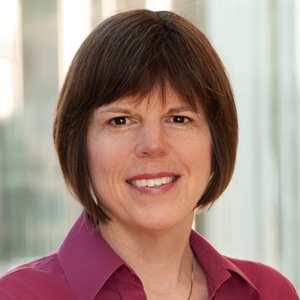Q&A: How a Workshop Lifts NGOs in Ukraine
Tuesday, October 10, 2023

Q&A
with Amy Gillett on NGO Leadership Workshop in Lublin
Since 2015, the William Davidson Institute (WDI) and its partners have provided NGO Leadership Workshops to nonprofit leaders from across Central and Southeastern Europe. In September, the eleventh such workshop was held in Lubin, Poland. In partnership with the University of Michigan’s Weiser Center for Europe & Eurasia (WCEE) and in cooperation with Warsaw-based partner FED (Fundacja Edukacja dla Demokracji) the workshop is designed to equip NGO leaders with the skills and networks to run their organizations more effectively and sustainably.
September’s workshop was focused solely on Ukrainian organizations and attracted 24 humanitarian and nonprofit leaders.
Q: What made this year’s event unique among the NGO Workshops WDI has helped organize thus far?
Amy Gillett: This was our eleventh NGO Leadership Workshop and the first specifically for Ukrainian NGOs. It was also the first time we held the event in Lublin, a city in Southern Poland close to the Ukrainian border. The attendees included 23 women and one man, and all are at the front lines of providing critical services for the war effort. Participants were able to travel to Lublin by bus or train, though it was an arduous journey for many due to the heavy lines at the border crossings.
It was particularly difficult for this group of participants to leave their organizations and their families. At the beginning of the workshop, we provided an opportunity for participants to express their fears and expectations for the week. This fostered an atmosphere where participants could communicate openly and feel supported.
Another great aspect of this workshop was our diversity of trainers, bringing a variety of viewpoints and perspectives. Our trainers came from three countries: the USA, Poland and Ukraine. They represented both academics, NGO leaders and trained facilitators.
Q: What were the key focus areas for the workshop?
Amy Gillett: Our curriculum was geared toward addressing their most pressing needs, with training on conflict resolution, negotiations, dealing with people with PTSD, burnout prevention, and building resilience.
Among those teaching in the workshop was University of Michigan LSA professor Eric Fretz, who also served for 24 years in the U.S. Navy and was able to draw on his experiences in conflict zones including Iraq. Following the event, he posted this look back.
Every session included lots of interaction and hands-on activities – by the end of the workshop, the entire wall of the training room was covered with Post-it notes and colorful posters. And each instructor had their own approach to training, which helped keep the energy up throughout the four days.
“This workshop gave me the confidence that I am a leader, that I have the strength and ability to continue to support women. I have to take care of my team, prevent burnout and conflicts, and lead ethical policies, then the world will be a better place.”
—NGO Leadership Workshop Participant
Q: How about the attendees? What types of organizations did these leaders represent?
Amy Gillett: Their NGOs focused on a range of activities, including: providing critical medical services, offering psychological assistance, defending human rights, preventing gender based violence, providing legal services, and preserving Ukrainian cultural heritage.
Among the workshop participants was noted video blogger Anna Danylchuk, who along with running an NGO focused on preserving and promoting the cultural heritage of Ukraine, releases daily video dispatches on the war in Ukraine. In fact, she continued to broadcast from our workshop, using her hotel room as her studio.
Q: How can these leaders apply what they learned to the immediacy of what Ukrainian citizens are facing as a result of the Russian invasion and ongoing aggression?
Amy Gillett: This workshop offered practical skills for improving wellbeing, building resilience, preventing burnout and increasing emotional intelligence. Many participants spoke out about how useful these areas are given the current situation. The fighting spirit of the Ukrainians is very impressive — participants always speak of “when we win the war.” The week in Lublin was a chance for participants to recharge and renew their energy for this ongoing battle. As one participant commented to me at the closing dinner, “I’m in a good place emotionally and psychologically and that means I can do more to help others.”
The workshop also enhanced the participants’ confidence as leaders. This will help them guide their organizations through these very challenging times. As one participant expressed, the workshop gave her the strength and ability to continue in her organizational mission of supporting women.
Many participants also found cooperation opportunities with each other. They are now embarking on new joint projects, combining resources and ideas to undertake high-impact work together.
Q: WDI is always seeking feedback for our projects, what have participants reported back?
Amy Gillett: Here are some notable quotes from participants:
“This workshop gave me the confidence that I am a leader, that I have the strength and ability to continue to support women. I have to take care of my team, prevent burnout and conflicts, and lead ethical policies, then the world will be a better place.”
“The workshop is really helpful and important for my personal development and beneficial to my organization. Lots of insights, practical instruments, brilliant speakers!”
“Ukrainian civil society has proven to be very brave, effective and productive. Invest in it and together we will win!”
The next workshop is planned for June 2024 in Košice, Slovakia and will again focus on Ukraine, with the NGO leaders coming from Ukraine and nearby countries. Learn more about upcoming and previous workshops here.
